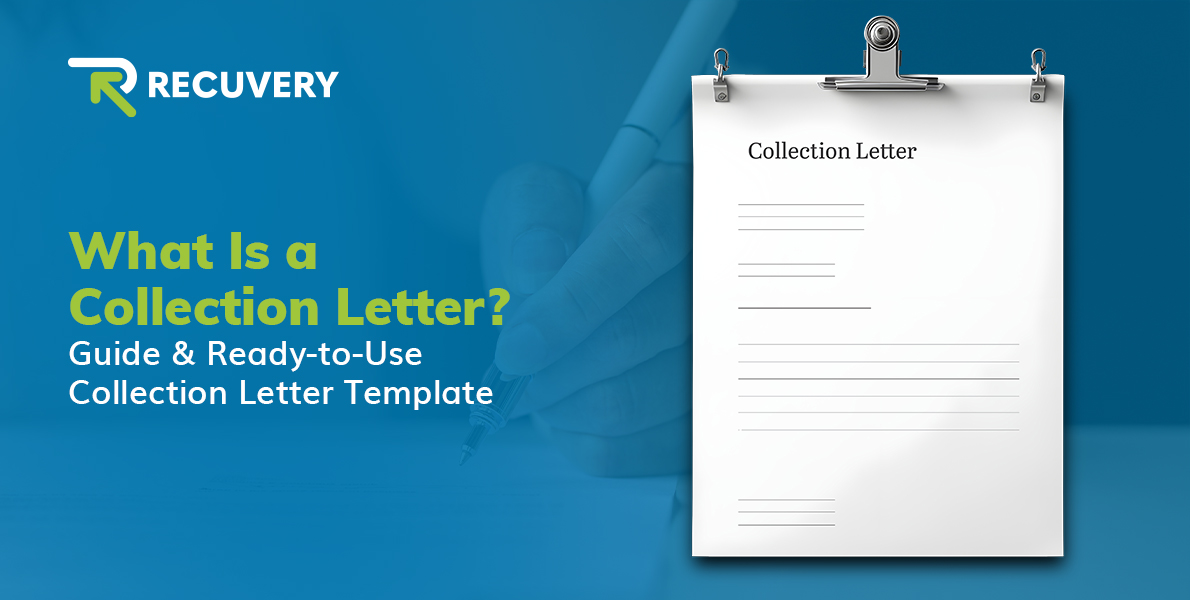Medical Debt Collection: A Complete Guide for Patients and Providers

Medical debt is a looming problem for countless people across the U.S. For a family living paycheck to paycheck, an unexpected medical bill can be an impossible burden to bear. Unlike other expenses, these bills are usually non-discretionary and leave little to no room for preparation.
CFPB data shows that about 15 million Americans have medical debt listed on their credit reports, amounting to roughly $49 billion.
The unpaid debt also poses a challenge for healthcare providers. While it’s essential for them to provide people with necessary care, it’s also crucial for providers to get paid for their services. That is why many providers push accounts that aren’t paying into collections.
This makes navigating the medical scene a bit difficult for everyone involved. For patients, the threat of collections adds significant stress to an already challenging health situation. For providers, it can hinder financial sustainability.
This guide breaks down how medical debt collection works, what happens when a hospital bill is sent to collections, whether interest can be charged, patient rights, legal implications, and best practices for healthcare providers.
We answer all the questions that patients may have and share all the tips that providers are looking for.
What Is Medical Debt Collection?
It occurs when unpaid hospital bills are turned over to medical debt collectors.
Let’s say a patient has an overdue medical bill. Even after multiple reminders and follow-ups from the healthcare provider, the bill remains unpaid. At this point, the provider often has no choice but to hand over the account to a medical bill debt collector or a third-party collections agency.
What Happens When Your Hospital Bill Is Sent to Collections?
Once this happens, the collection agency takes over communication with the patient. They send payment reminders, attempt to set up flexible payment plans, and may even report the debt to the three major credit bureaus. It’s important to note a recent change in this process: as of 2023, medical debt under $500 is no longer included on consumer credit reports. However, any amount above that threshold can still be reported. A negative entry on a credit report can significantly hurt a patient’s credit score, sometimes making it difficult to rent a house, qualify for a loan, or even apply for certain jobs.
From the patient’s perspective, this can feel intimidating and stressful. Medical debt is rarely intentional; it often arises from emergencies, high deductibles, or insurance gaps. The involvement of collectors can add emotional strain to an already difficult health situation.
Why Do Providers Often Use Medical Bill Debt Collectors?
From the provider’s side, however, the reality is just as challenging. Hospitals and clinics rely on consistent cash flow to pay staff, maintain equipment, and continue serving patients. When bills remain unpaid despite multiple attempts, they turn to debt collection for medical bills as a last resort to recover costs.
Unfortunately, this process can strain the patient-provider relationship if not handled carefully. Some collectors may use aggressive or coercive tactics, which can harm the trust that took years to build.
How Medical Bill Collections Work?
The medical bill collections process typically begins long before a debt is ever sent to a collection agency. It follows a series of steps right from the billing to the final reminder, so the patient gets ample opportunity to pay, clarify charges, or request assistance before any legal action is considered.
Here’s how it usually works:
▪ Billing Stage
After receiving medical care, the healthcare provider generates a bill based on the services rendered, insurance adjustments, and any remaining balance.
▪ Payment Reminders
If the bill isn’t paid by the due date, the provider sends out multiple reminders – through phone calls, emails, or mailed notices. At this stage, patients are often encouraged to discuss payment plans or financial aid options.
▪ Account Goes to Collections
If the balance remains unpaid after repeated reminders, the hospital bill is sent to collections. The provider then transfers the account to a medical debt collector, who contacts the patient to recover the outstanding balance.
▪ Possible Legal Action
If all recovery efforts fail, the debt collector or provider may choose to pursue legal action. This can lead to a court judgment, wage garnishment, or liens, depending on state laws — though these are typically last-resort measures.
But can patients really be taken to court for an overdue medical bill they are unable to pay?

Learn How to Write Effective Collection Letters for Faster Medical Debt Recovery.
Read Our GuidePatient Rights: Legal Protections in Medical Debt Collection
When a medical bill is sent to collections, the experience can feel overwhelming—especially when you’re unsure of your rights or what steps to take next. But with the right information, patients can move from confusion to control. Understanding the process, knowing what to expect, and learning how to respond can make all the difference.
Here’s what you need to know if your medical bill goes to collections:
1. Know Your Rights Under the Fair Debt Collection Practices Act (FDCPA)
The FDCPA protects patients from harassment and unfair practices. Under this law, debt collectors cannot engage in:
- Harassment: Collectors are not allowed to use threats, obscene language, or make repeated, annoying phone calls. They also have limits on when and how they can contact a patient, such as not calling before 8 a.m. or after 9 p.m. without the patient’s permission.
- False or Misleading Statements: A collector cannot misrepresent the amount owed, claim they are a government official, or threaten to have a patient arrested. They must provide accurate information about the debt.
- Unfair Practices: This includes attempting to collect extra fees or interest that are not authorized by law or the original agreement.
2. Always Request an Itemized Medical Bill
Before paying anything or entering negotiations, patients should ask for an itemized bill. This helps you:
- Verify each charge
- Catch duplicate or incorrect billing
- Understand what insurance did or didn’t cover
- Spot coding or clerical errors
What Is an Itemized Bill in Medical Billing?
An itemized bill in medical billing is a detailed breakdown of every service, procedure, medication, and supply that contributed to your total medical charges.
Rather than showing just one lump sum, it lists:
- Dates of service
- Names of treatments or tests
- Quantities and unit prices
- Any insurance payments or adjustments
An itemised bill gives you a clear understanding of what you owe and allows you to dispute any discrepancies that you might spot.
3. Ask for Debt Validation If Contacted by a Collector
This is one of the most powerful rights under the FDCPA. When a debt collector first contacts a patient, they are required to provide a written validation notice that includes key information about the debt. A patient has 30 days from the date they receive this notice to send a written request for validation.
By requesting debt validation, the patient is asking the collector to provide proof that the debt is theirs and that the amount is correct. The collector must stop all collection efforts until they have provided this verification. This is a patient’s chance to identify and dispute any potential errors, such as:
- Bills for services not received.
- Duplicate charges.
- Incorrect billing codes or amounts.
- Charges that insurance should have paid.
4. Can You Negotiate Medical Bills?
Regardless of a patient’s financial situation, many medical bills—even those in collections—are negotiable. Both before and after a bill goes to collections, there are opportunities to reduce the total amount owed or set up a manageable payment plan.
➧ Negotiating with the Provider (Before Collections)
It’s always best to try to negotiate directly with the healthcare provider first. Many hospitals and clinics have financial assistance programs, and they are often more willing to settle for a lower amount than a collection agency. Patients can ask for a discount, especially if they are paying in a lump sum, or request an interest-free payment plan that fits their budget.
➧ How to Negotiate Medical Bills in Collections?
Even after a debt has been sent to a collection agency, negotiation is still possible. Debt collectors often purchase debt for a fraction of its original value, so they may be willing to accept a lump-sum payment that is significantly less than the full amount. Patients can offer to pay a percentage of the total debt—often between 30% and 50%—in exchange for a “pay-for-delete” agreement, where the collector agrees to remove the negative entry from their credit report upon payment.
5. Can Debt Collectors Charge Interest on Medical Bills?
This depends on state law and the terms of the original agreement between the patient and the healthcare provider. In some states, a collection agency may legally charge interest, but only if the original contract allows for it or if state law specifically permits it. Patients should always be vigilant and carefully review any communication from a collection agency to see if interest is being added. If they have questions, they should ask for a clear explanation of all charges and fees.
6. Legal Aspects of Medical Debt Collection
When an unpaid medical bill moves to collections, the situation can escalate to legal action. It’s important for both patients and providers to understand the legal framework that governs this process, which varies significantly by state. Here are a few questions you may have:
➧ Can a Hospital Sue You for Medical Debt?
Yes, a hospital or collection agency can file a lawsuit to recover an unpaid medical debt. However, legal action is typically a last resort due to its cost and time. If a lawsuit is successful, a judgment may allow for wage garnishment, bank account levies, or property liens.
➧ How Long Can Medical Debt Be Collected?
This is determined by the statute of limitations, a legal time limit for creditors to sue for debt. This period varies by state, often lasting from three to six years, starting from the last payment or date of service. Once this period has passed, a debt collector cannot legally sue a patient, though they can still attempt to collect through other means.
➧ Is It Illegal To Send Medical Bills to Collections?
No, it is not illegal for a provider to send a bill to a collection agency, as long as they follow the law. This process is a necessary part of healthcare operations. Both providers and collectors must comply with federal laws like the Fair Debt Collection Practices Act (FDCPA) and any state-specific regulations that protect patients’ rights.
Best Practices for Medical Debt Collection (For Providers)
Healthcare providers walk a fine line when it comes to maintaining financial sustainability and upholding patient trust. The traditional, aggressive methods of collections, like constant phone calls or threatening letters, are not only ineffective but can also harm a practice’s reputation and alienate the very community it serves.
Adopting ethical, compliant, and patient-sensitive collection practices improves recovery rates and protects long-term relationships.
Key Strategies Providers Should Follow:
➮ Send Clear, Itemized Bills Upfront
Confusion is one of the biggest reasons patients delay payments. Providing a transparent, itemized bill helps patients understand:
- What services they’re being charged for
- What insurance covered
- Any remaining balances or co-pays
- How to contact billing support
This reduces disputes and improves payment timelines.
➮ Offer Financial Counseling & Flexible Payment Options Early
Many patients don’t default because they refuse to pay — they simply can’t pay all at once. Offering support at an early stage helps avoid escalation. Examples:
- Installment plans
- Sliding-scale pricing or financial hardship programs
- Assistance with insurance claims or documentation
This approach increases voluntary payments and improves patient satisfaction.
➮ Be empathetic in Communication
Train staff to handle sensitive financial conversations with respect and a focus on finding a solution, not just demanding payment.
➮ Automate Follow-Ups Instead of Manually Chasing
Manual outreach drains admin time and often leads to inconsistent or delayed follow-through. Automating the process ensures:
- Timely follow-ups via email, SMS, or portal notification
- Consistent communication tone
- Fewer missed billing cycles
- Less staff intervention
Automation reduces operational burden while improving collection rates.
Do It Right With Recuvery
Recuvery is a modern, ethical alternative that transforms the collections process from a point of conflict into a mutually beneficial interaction.
Recuvery helps providers get paid efficiently by automating billing communications and sending clear, timely reminders. By integrating with your existing systems like QuickBooks, Recuvery creates a smooth workflow that saves staff time.
For patients, it offers an easy-to-use app where they can make payments and set up plans on their own terms. So it’s a win-win for everyone. Providers can improve their revenue cycle while maintaining strong patient relationships, and patients can resolve their financial obligations in a stress-free way.
Final Takeaway
Medical debt collection presents a significant challenge for both patients and healthcare providers. Navigating it effectively requires a clear understanding of patient rights, legal obligations, and practical strategies for resolution.
For patients, the key takeaway is empowerment through awareness. By knowing your rights under the Fair Debt Collection Practices Act (FDCPA), requesting debt validation, reviewing itemized bills, and negotiating payment plans or settlements, you can take control of the situation instead of feeling overwhelmed. Medical debt doesn’t have to define your financial future when you approach it with information and intention.
For providers, the path forward lies in compassion and modernization. The old, aggressive methods of collections are no longer effective and can harm the very relationships a practice works so hard to build. By embracing ethical, technology-driven solutions, providers can ensure their financial health while continuing to serve their communities with empathy.
Medical debt can be a manageable challenge if both patients and providers work together to find a solution that benefits everyone involved.
Struggling with Medical Debt Collection?
Explore an Easier, Faster Way to Recover Medical Debts.
Schedule a Demo Today!FAQs
1. What Happens if You Don’t Pay Medical Bills?
Unpaid medical bills can be sent to collections, affect your credit, and may lead to legal action depending on state laws.
2. Can You Negotiate Medical Bills in Collections?
Yes, you can often negotiate a lower payoff amount or set up a payment plan with the collection agency.
3. Can You Be Sued for Medical Debt?
Yes, if the debt remains unpaid and is within the statute of limitations, a provider or debt collector can take legal action.
4. How Do You Settle Medical Debt in Collections?
You can request a lump-sum settlement, negotiate a reduced payoff amount, or set up a structured payment plan.
5. Can Interest Be Charged on Medical Bills?
Interest can be applied depending on state laws and the original agreement, so it’s important to review your billing statement closely.






